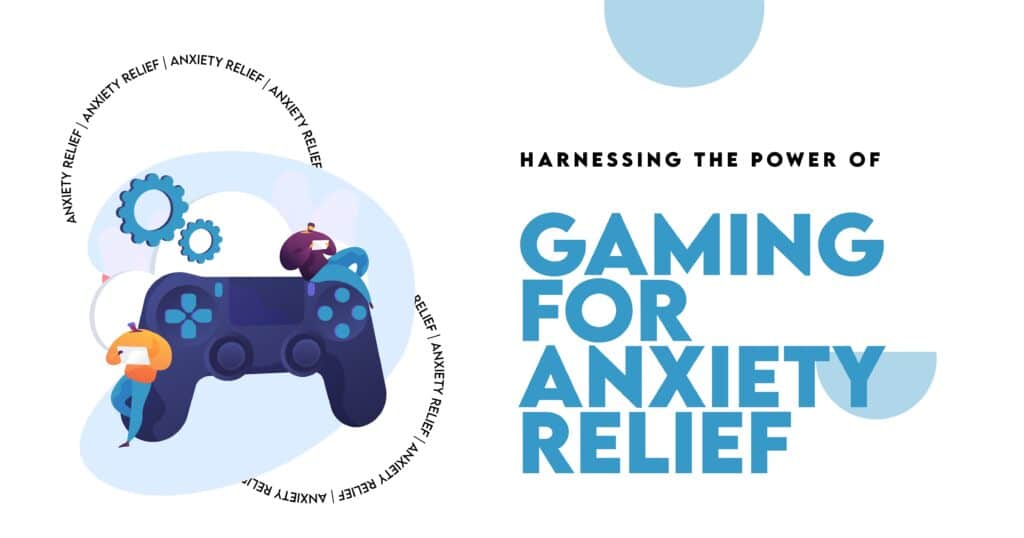The term god complex is often used to describe someone who seems excessively arrogant or controlling, but what does it mean? At its core, a god complex refers to an inflated sense of self-importance, marked by entitlement, superiority, and delusions of grandeur.
So, what is a god complex from a psychological perspective? While it’s not a formal diagnosis, it describes a pattern of behavior often linked to narcissism and a belief in one’s infallibility. This mindset can damage relationships, limit personal growth, and, in some cases, point to deeper psychological disorders.
In this article, we’ll explore the traits, causes, and impact of a god complex – and how mental health support can help address its underlying patterns.
What Is a God Complex?
A god complex is a behavioral pattern in which an individual believes they are infallible, all-powerful, or morally superior. Though not a clinically recognized diagnosis, the term is used in psychology and pop culture to describe someone with an exaggerated sense of their own importance or capabilities. According to Psychology Today, individuals with narcissistic tendencies may exhibit similar grandiose behavior, often struggling with empathy and a need for dominance in relationships.
So, what is a god complex in practical terms? It’s often associated with traits like narcissism, arrogance, and entitlement. Individuals with this complex may view themselves as above the rules, beyond reproach, or more valuable than others. They might disregard feedback, dominate conversations, or show little regard for others’ boundaries or feelings.
This inflated self-image is sometimes linked to underlying personality disorders or unresolved emotional wounds. Whether expressed subtly or overtly, a god complex can lead to strained relationships, poor collaboration, and resistance to personal growth.
Characteristics of Narcissism and Self-Importance
Narcissism and self-importance are central to the behavioral patterns found in those with a god complex. These traits are often expressed through a heightened need for admiration, exaggerated self-image, and a lack of concern for how others feel. While some traits may appear as confidence on the surface, they often mask deeper insecurity or a need for control.
- Exaggerated sense of one’s importance
- Constant need for validation or praise
- Inability to handle criticism
- Belief that one’s achievements are beyond comparison
- Lack of empathy for others
- Tendency to manipulate or dominate conversations
- Preoccupation with status, power, or success
The Role of Superiority and Delusions of Grandeur
Individuals with a god complex often operate from a deep-rooted belief in their superiority over others. This can lead to delusions of grandeur – exaggerated beliefs about one’s abilities, influence, or purpose. These thoughts can affect how a person interacts socially, professionally, and emotionally. While not always diagnosable, such delusions can reflect underlying psychological vulnerabilities or disorders, especially when they distort reality.
Here’s how superiority and delusions of grandeur often manifest:
| Trait or Behavior | What It May Reflect |
| Belief in being above the rules | Disregard for boundaries or shared norms |
| Viewing others as inferior | Dehumanizing or dismissive attitudes toward peers |
| Inflated sense of destiny or power | Grandiose thinking or unrealistic self-perception |
| Dismissal of feedback or criticism | Fragile ego masked by intellectual or moral superiority |
| Overestimation of influence or success | Self-delusion or identity inflated beyond actual achievement |
Entitlement and Arrogance in Psychological Disorders
Entitlement and arrogance often surface as defense mechanisms in individuals with complex psychological profiles. When tied to deeper personality disorders – such as narcissistic personality disorder – these traits can create long-term barriers to empathy, accountability, and relationship health. Entitlement suggests a belief that one deserves special treatment; arrogance reinforces the idea that others are less worthy.
Here’s how these traits appear within the context of psychological dysfunction:
| Trait | Description |
| Entitlement | Belief that one’s needs, time, or perspective matter more than others’ |
| Arrogance | Assumption of being right, better, or more intelligent by default |
| Lack of humility | Inability to admit mistakes or acknowledge limits |
| Resistance to help or therapy | Viewing help as unnecessary due to inflated self-image |
| Devaluation of others | Chronic belittling, blaming, or dismissing others’ contributions |
Omnipotence and Its Psychological Implications
Omnipotence – the belief in having unlimited power, influence, or control – is often a core psychological feature of individuals exhibiting a god complex. While this belief may appear as overconfidence on the surface, it can signify deeper disconnection from reality and a fragile sense of self rooted in denial or overcompensation.
Psychologically, omnipotent thinking can distort one’s ability to form balanced relationships. It often leads to conflict, as the individual may refuse compromise, dismiss others’ perspectives, or expect constant compliance. In more severe cases, such thinking may overlap with delusional ideation, especially in individuals struggling with narcissistic or other personality disorders.
The emotional cost of this mindset includes chronic dissatisfaction, loneliness, and limited capacity for genuine connection – all masked by the illusion of personal supremacy. Left unexamined, omnipotence can erode self-awareness and obstruct emotional growth.
Recognizing the Signs of a God Complex
Identifying a god complex involves more than spotting arrogance or high self-esteem. It requires paying attention to consistent patterns of behavior that reveal a person’s belief in their own superiority, their dismissal of others, and their resistance to accountability. These signs may be subtle or overt, but over time they form a recognizable psychological profile.

Common signs include:
- consistent belief that one is always right, regardless of evidence or feedback
- refusal to acknowledge mistakes or accept responsibility
- a strong need to dominate conversations or decision-making
- extreme sensitivity to criticism, paired with harsh judgment of others
- tendency to see others as tools, obstacles, or less intelligent
- lack of empathy or interest in others’ emotions or experiences
- viewing oneself as morally or intellectually above others
- difficulty forming equal or mutual relationships
How a God Complex Affects Personal Relationships
A god complex doesn’t just affect the individual – it deeply shapes the relationships around them. When someone believes they are always right, above criticism, or superior to others, emotional intimacy becomes difficult to sustain. This mindset often leads to strained communication, chronic conflict, and the breakdown of trust over time.
In romantic or family relationships, individuals with a god complex may demand admiration while offering little emotional reciprocity. They may invalidate others’ feelings, dominate conversations, and expect compliance rather than collaboration. Over time, this imbalance can cause partners, friends, or family members to feel invisible, powerless, or emotionally drained.
At its core, a god complex erodes mutual respect – replacing empathy with control, and vulnerability with performance. Without intervention, the cycle can lead to long-term emotional harm on both sides.
Challenges in Social and Professional Life
In social and professional environments, the effects of a god complex can become even more visible. While individuals with these traits may initially appear charismatic or competent, their inability to accept feedback or collaborate can quickly become a liability. Below is a breakdown of common challenges and their broader impact:
| Challenge | Impact |
| Inability to take criticism | Stunts personal growth and damages team dynamics |
| Overestimation of abilities | Leads to unrealistic expectations and overpromising |
| Dismissive attitude toward others | Creates a toxic work or social environment |
| Need for control or dominance | Causes tension in group settings or leadership roles |
| Lack of accountability | Results in blame-shifting and conflict when problems arise |
| Difficulty building trust | Peers and colleagues may withdraw or avoid collaboration entirely |
Treatment and Support Options at La Jolla Mental Health
Recognizing a god complex-whether in yourself or someone close-can be challenging, especially when behaviors are masked by charisma or confidence. However, these patterns can deeply affect emotional well-being and relationships over time. With compassionate, evidence-based care, it is possible to address the root causes and promote lasting change.
At La Jolla Mental Health, our licensed professionals offer personalized therapy for individuals navigating narcissistic traits, delusions of grandeur, and related psychological disorders. Through guided self-reflection, emotional regulation, and interpersonal skill-building, treatment helps restore balance, empathy, and a healthier sense of self.

FAQs
What are the key characteristics of narcissism that contribute to a god complex?
Traits such as an exaggerated sense of self-importance, lack of empathy, and constant need for admiration are central to narcissism. These behaviors often feed into a god complex by reinforcing the belief that one is above others.
How does a sense of superiority relate to delusions of grandeur in individuals with a god complex?
A strong belief in personal superiority can evolve into delusions of grandeur, where individuals see themselves as infallible, all-powerful, or destined for greatness. This distorted self-view can lead to problematic relationships and poor decision-making.
In what ways do entitlement and arrogance manifest in those experiencing psychological disorders associated with a god complex?
Entitlement may present as expecting special treatment or believing rules don’t apply, while arrogance involves dismissing others’ perspectives or abilities. Together, they can hinder emotional growth and damage personal and professional relationships.
What are the psychological implications of omnipotence in individuals exhibiting a god complex?
Omnipotent thinking can lead to a lack of accountability, emotional isolation, and unrealistic expectations. Over time, it may prevent genuine self-awareness and contribute to deeper psychological disorders if left untreated.
How can one recognize the signs of a god complex linked to self-importance and narcissism?
Watch for patterns such as refusal to accept criticism, excessive need for control, and viewing others as inferior. These behaviors often reflect an inflated self-image rooted in narcissism and a fragile internal sense of self.








